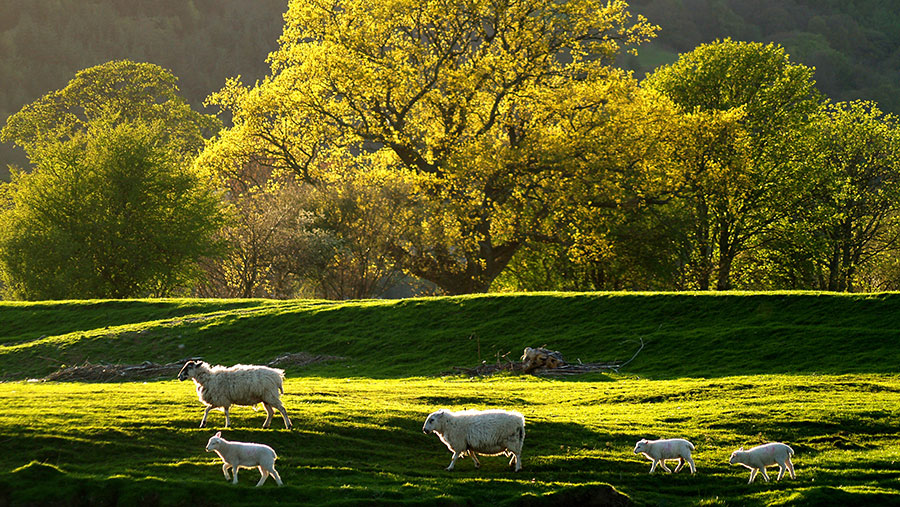Welsh farm unions question 10% tree cover ambitions
 © Harvey Hudson/Adobe Stock
© Harvey Hudson/Adobe Stock Welsh farm leaders have hit out at government plans to force all farms to have a minimum 10% tree cover – one of the headline requirements in the draft Sustainable Farming Scheme (SFS) unveiled by rural affairs minister Lesley Griffiths on Tuesday 5 July.
Under the proposals to replace EU subsidies from 2025, Welsh farmers will be paid to commit 10% of their land to trees. Another part of the three-tier scheme will see an end to bare, brown fields over winter, with farmers who opt in to the scheme required to grow cover crops.
See also: New Welsh farm support scheme majors on tree planting
Other environmental incentives will be optional – for instance, farmers could generate further payments by establishing mixed swards of grasses, legumes and herbs, or “decarbonsing” their machinery.
The Farmers’ Union of Wales (FUW) said the proposals were “on the right track”, but that numerous concerns existed about some of the detail.
“The proposal that 10% of all farms should comprise tree cover will be a major concern for many farmers for whom this would mean losing a large proportion of their productive land, and there are also concerns about how this would affect tenants,” said FUW president Glyn Roberts.
“There are also some farms, such as in exposed coastal areas or those in designated areas, where meeting this obligation would simply not be possible.”
NFU Cymru had similar concerns. “As a globally responsible nation, we must ensure that proposals for increased tree cover and habitat are not achieved at the expense of food production,” said union president Aled Jones.
“I remain concerned that the SFS continues to lack outcomes to ensure levels of domestic food production are maintained and enhanced.”
NFU Cymru also expressed concern that payment rates have not yet been published. This, said Mr Jones, made it “impossible’’ for farmers to consider how the scheme would support their businesses.
But the FUW was more relaxed on this issue, saying it would be “premature and potentially dangerous” to provide such information before getting the framework of the scheme correct.
Both unions welcomed a commitment to target future payments towards “active” farmers, and for them to receive a “baseline payment” for undertaking “universal actions”.
Meanwhile, Ms Griffiths believed the SFS offered “a real opportunity for positive change” that would “help the sector prosper”.
“We will be engaging with the sector during the next stage of co-design before consulting on the final proposals next year.
“I have always said I want to work with our farmers to ensure this scheme works for them and our nation.”
